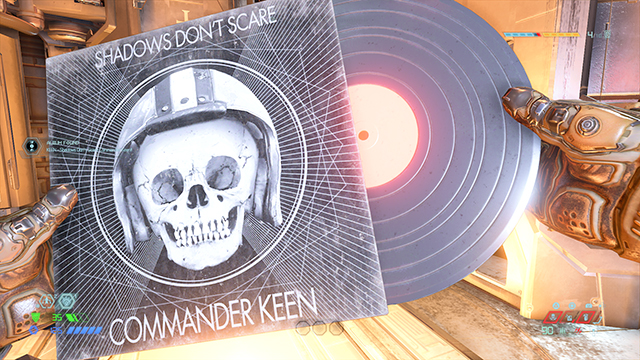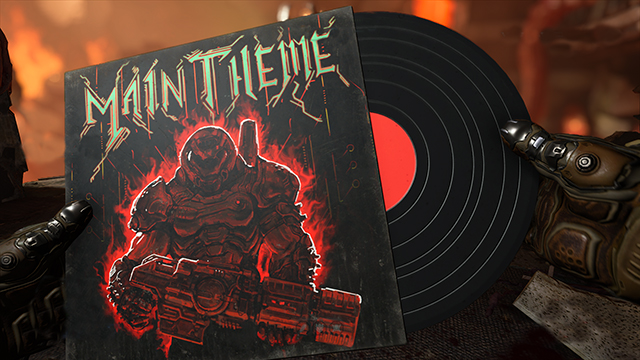Doom Eternal is easily one of the best games of the year. Carving up Hell’s legions never grew stale and was boosted by Mick Gordon’s thumping soundtrack. But it looks like he won’t be composing any tracks for the upcoming DLC, which Doom Eternal Executive Producer Marty Stratton laid out in an extensive post addressing the controversy surrounding the game’s soundtrack.
Fans were initially angry at the quality of the game’s OST release — citing wavelengths with less range — as Mick Gordon didn’t mix most of the tracks. Gordon also then allegedly raised doubts about ever working with Bethesda again. Now, after a couple weeks of silence, Stratton finally penned an open letter on the series’ official subreddit explaining the situation from id’s side.
ALSO: Doom Eternal x FF7 crossover is a weird fandom mashup
In it, he praised Gordon for his work before also alleging that he also missed plenty of his deadlines and had plenty of creative freedom. These deadlines were important because of how some countries have consumer protection laws that let customers get a full refund if that “product is not delivered on or about its announced availability date.” Gordon was originally supposed to deliver the soundtrack (12 tracks minimum) in early March for the digital soundtrack and collector’s edition with complete creative control and “bonus payments for on-time delivery.”
However, he hit snags in late February, but said he’d be able to get around 30 tracks with the extra time, which ended in mid-April. Stratton even said his bonus payment was moved to this new date. But April hit and the team needed a backup plan so Lead Audio Designer Chad Mossholder was assigned to create “id versions” of the music in case something happened. Gordon was notified of this in “early April” and suggested that he work with Mossholder, combining both of their tracks to “come up with a more comprehensive release.”
On the new due date, Gordon noted that he was still finishing the music, but would have his 12 contracted tracks that night. But they were not complete by the next morning and when he sent in nine tracks he completed, Stratton said they weren’t up to the standards people expect from a Doom game since they were “ambient in nature” and not the heavier combat tracks. Those nine (including two others) were spliced into the OST chronologically with Mossholder’s work. Stratton said he even offered to put the final twelfth Gordon track in as a bonus later on.

Gordon has not responded to Stratton’s open letter, but apparently the two emailed each other recently, with Gordon citing his concerns with the editing, fan attacks on Mossholder, scope of the 59-track soundtrack, and issues with giving Mossholder a co-composer credit (which Stratton said wasn’t true in the metadata). Stratton, in addition to saying Gordon did “nothing to change the conversation about attacks on Mossholder,” replied with how id did the best with what they had. This includes the “bricked” music as id doesn’t have access to the songs with the higher dynamic ranges.
“From our perspective, we didn’t want to be involved in the content of the OST and did absolutely nothing to prevent him from delivering on his commitments within the timeframe he asked for, and we extended multiple times,” stated Stratton.
He also revealed that Mick won’t be composing any new music for the game’s upcoming DLC (which we still don’t know much about) and hinted that they wouldn’t be working together in the future either.
“I’m as disappointed as anyone that we’re at this point, but as we have many times before, we will adapt to changing circumstances and pursue the most unique and talented artists in the industry with whom to collaborate,” he said. “Our team has enjoyed this creative collaboration a great deal and we know Mick will continue to delight fans for many years ahead.”
Gordon did mix the Doom 2016 and Wolfenstein 2: The New Colossus soundtracks. But both of those albums released multiple months after their respective games: four months and five months, respectively. This pattern shows that he likely needs a great deal of time to properly mix these tunes to be played outside of the game. It’s possible that releasing the soundtrack this close to the game’s release didn’t quite fit into his regular groove of mixing game music and is why he allegedly missed his deadlines.











